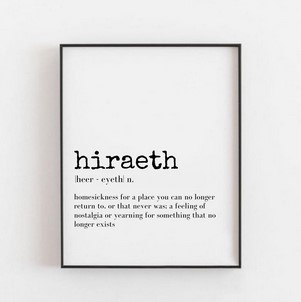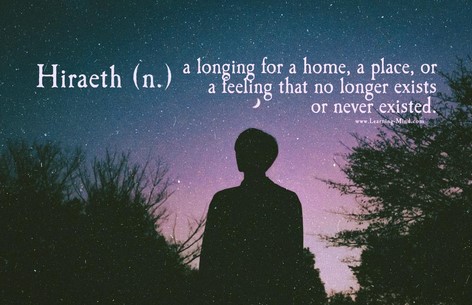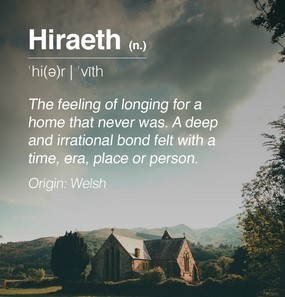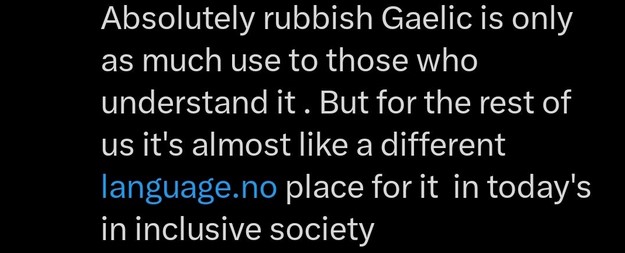The Celtic nations and fantasy
Apr. 20th, 2025 02:49 pmBut even when there is no direct connection within a text that "Celtic = magic/non-human", I still feel that the mere presence of Celtic aspects in fantasy is an inherent issue. Why is it that writers seem to subconsciously associate our cultures with fantasy? Why do our languages (or bastardised versions of them) make an appearance in fantasy, when they often do not within other genres? Why do so few authors want to use German/French/Italian/etc in their fantasy works? Why are languages like Welsh and Irish more of an "obvious" choice for them?
Why are our languages and cultures seen as inherently more easy to associate with fantasy? There is this assumption held by the general public who are not into Celtic Studies that Celtic cultures are much more "ancient" in some way than other European cultures. People assume that the ancient Celts and the modern day Celtic nations form some sort of unbroken, inherited sense of uniform Celticness, and that that gives us our cultures some sort of mythical properties because of our "unbroken link to the past" or whatever. This manifests in people assuming that we are more "primitive", and that makes us easier to fit into a medieval-style high fantasy setting. The "noble savage" stereotype of Celtic peoples. The sort of subconscious idea that we have "ancient druidic power" that makes us more "fantastical".
It's easy to poach from minoritised cultures. Few people will notice you've done it, and the few that do notice will have such a small voice compared to the majority that are indifferent. And people will defend authors' decisions to other us and even deny that Celtic languages have been used in a certain work (I'm especially thinking of fans of The Witcher... I'll likely never get into those books/games/show). It's funny to me when I see that there's a wolf/man character in Elden Ring called "Blaidd", because that just means "wolf" in Welsh. I'm sure it sounded "cool" and "fantasy" to whoever named him that, but it's just blatantly taking a very common/obvious word from a minority language because you think that no-one who plays your game will know what it means and just think it's a fantastical word. Or "Blaidd means wolf" will just be a cool bit of trivia.
Do authors who include our languages even know how to pronounce them? And if they do, does it make it better? Personally I'd still be upset if an author who spoke a Celtic language included that language in fantasy, if they were including it without thinking about how they are portraying it, or why they included a Celtic language and not, for example, a Romance language. If they included a Celtic language or culture in their work, and still fell into all the same old stereotypes of Celtic peoples, it would still be bad. To be honest, the inherent inclusion of a Celtic language in fantasy is enough to put me on edge, even if the author isn't saying that "Celtic = magic" or whatever.
I do like fantasy as a genre. I just find it hard to engage with. There are fantasy books, films, and games that I love, despite any Celtic-related flaws they may have. Their inclusion of Celtic aspects may still make me uncomfortable though, or snap me out of my experience of enjoying the work. When I was playing Arcanum: Of Steamworks and Magick Obscura in 2023, I initially found it funny that there was a kingdom called Cumbria, since that is the name of an English county that used to be Brythonic-speaking until the middle ages, and the name is related to the modern Welsh word for Wales, "Cymru". And the kingdom also had Dragon Knights, which obviously felt very Welsh. But in retrospect, I think that perhaps a political point was trying to be conveyed there, considering the fictional Cumbria's relationship to the Unified Kingdom (clearly based off the real world United Kingdom). Cumbria had been subdued by the Unified Kingdom and had parts of its territories annexed. I think maybe I'd be interested to go back at some point and examine that part in the game more closely, as an analogy for Wales and its place in the UK. So I do think Celtic peoples can be put into fantasy. I just also wonder why authors seem to have a more difficult time putting us into sci-fi, action, thriller, horror, slice-of-life, etc.
I myself have a fantasy story that I've been working on ("writing" would be an incorrect term since it's mostly note-making, and I rarely get around to actually writing anything fiction these days. A shame. I should try and get back into it...) So far I've purposefully avoided putting any characters with any Celtic names or any other Celtic-coding into my story. I would like to, but I'm not sure on the best way to go about it. I think I would be interested in writing a fantasy story that subverts all of the usual conventions of including Celtic-coded characters in fantasy. Again, I'm not sure how to do that. And I would be interested in reading fantasy by other authors from Celtic nations who want to challenge all the usual Celtic-based tropes of fantasy.






